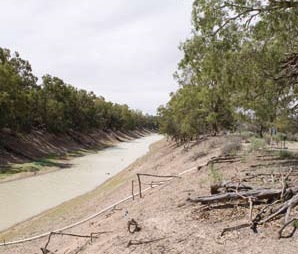MDBP rejection ripples
 Experts have reflected on the blocked changes to the MDBP.
Experts have reflected on the blocked changes to the MDBP.
A Senate motion by the Greens last week prevented planned changes to the Murray Darling Basin Plan that would have reduced the amount of water being returned to the environment in southern Queensland and northern NSW.
The Federal Government has sought to reduce the amount of water it acquires for the environment in the Northern Basin by 70 gigalitres, providing more to irrigators and reducing pressure on farmers.
The Victorian and NSW state governments backed the amendments in the hope of providing job security for their states' irrigators.
There is now concern that the states will pull out of the deal entirely.
The Greens and Labor say they want an independent audit into corruption and water theft allegations, greater community consultation and consideration of environmental impacts.
The experts say important points are being missed.
Professor Quentin Grafton (Professor of Economics and Director of the Centre for Water Economics and Policy at the Crawford School of Public Policy at ANU) and John Williams (Adjunct Professor at the Crawford School of Public Policy at ANU) have issued a joint statement laying out the facts of the situation.
They make the following four specific arguments.
- The disallowed amendment stops proposed changes to the Basin Plan, not the other way around. That is, the Commonwealth (with the full backing of NSW and Victoria) want to reduce the volumes of water recovered in the Darling River that was in the original Basin Plan. Thus, by not allowing this amendment to pass the original intent for water recovery in the Basin is unchanged
- The amendment that was disallowed claims to be based on the ‘best available science’ yet, according to the Murray-Darling Basin Authority, up to 75 per cent of surface water extractions by irrigators in the Northern Basin are not even metered. There can be no credible science to support reductions in environmental water recovery when most of the water extracted by irrigators is not even metered
- The Basin Plan was about increasing net stream flows by 2,750 billion litres per year despite the fact that the Sustainable Diversion Limits in the Basin Plan actually exceed the average annual surface water diversions in the last 1980s and early 1990s and the 2000s. Thus, reducing this volume any more is contrary to key objects of the Water Act (2007), namely, “to ensure the return to environmentally sustainable levels of extraction for water resources that are over-allocated or overused”
- The irrigator lobby group and the state water ministers’ objections to the disallowed amendment is all about money rather than water. The volume of water in the amendment is less than 1 per cent of the annual average surface water diverted by irrigators in the Basin. What bothers them is that this disallowance may be the ‘thin edge of the wedge’ that will stop billions more of taxpayers’ dollars being wasted on efficiency and infrastructure projects that deliver virtually no public benefits, but provide very large private benefits to irrigators.
“It’s time to lift open the bonnet and see what is really happening in the engine of the Basin,” the pair said in a statement.
“It’s time for a full, independent scientific and economic audit of the billions spent on water recovery, and what it has delivered.
“Until, and unless, such an independent scientific audit happens, no person who cares about the public interest can allow amendments that would both change the Basin Plan and reduce stream flows in the Basin.”







 Print
Print